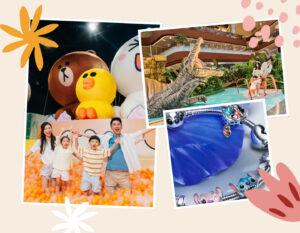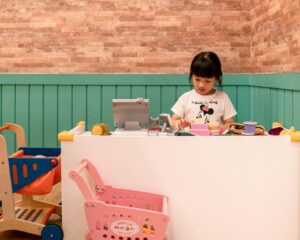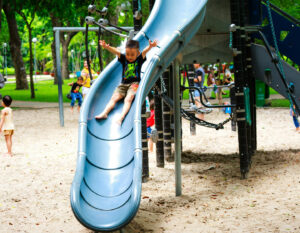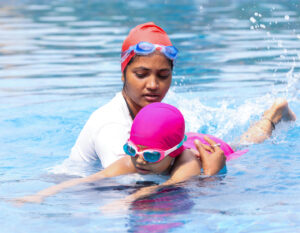
 Post Category - ParentingParenting - Post Category - Toddler & PreschoolerToddler & Preschooler - Post Category - 5-11 Year Olds5-11 Year Olds - Post Category - Tweens & TeensTweens & Teens
Post Category - ParentingParenting - Post Category - Toddler & PreschoolerToddler & Preschooler - Post Category - 5-11 Year Olds5-11 Year Olds - Post Category - Tweens & TeensTweens & Teens5 Secrets of Academic Success
We hear from author and teacher, Maya Thiagarajan as she shares with us all she’s learned and observed from the differing viewpoints of Eastern and Western cultures when it comes to raising happy and successful kiddos. We’re all ears!
As a teacher and parent who has lived and taught both in the US and in Asia, I’ve come to learn that both East and West have tremendous strengths when it comes to education. In my recently published book, “Beyond The Tiger Mom: East-West Parenting for the Global Age,” I share how parents on both sides of the world can learn a lot from each other; as global parents in an increasingly interconnected world, we can all draw from both East and West to raise successful and happy children.
Build a MATH Rich Culture in your home
For my book, I researched what parents in Singapore did with their young kids in significant depth. And one of the most important findings was the tremendous focus on math in the early years. Parents in Singapore deliberately set up math-rich homes for their kids and try to fuel an interest in math early on. They play mathematical games with their kids (board games, building activities, number riddles, chess etc.), they engage in lots of mathematical conversations (while cooking, riding in the elevator, or buying groceries), and they make kids complete more traditional math worksheets.
Build a READING Rich Culture in your home
This is an area where I think the Western education excels. When I lived in the US, I found that parents and educators really valued “pleasure reading,” and they worked hard to fuel a deep love of reading among kids. Parents invest time and energy in buying books, visiting public libraries with their kids, reading aloud to their kids, and engaging in lots of “book discussions.” Two things that work well for my family include “family reading time” on Sunday afternoons, as well as “book chats” where we all talk about a book that we read over the week.
It’s All About Focus
In an increasingly busy and over stimulated world, our kids often have a hard time focusing and concentrating on tasks. In conversations with parents and educators, I realised that we can help our kids extend their attention spans by doing a few important things: limit and regulate screen time, give kids longer tasks to complete and require them to finish the tasks in a set amount of time (for example, a math test in 30 minutes or a household chore in 20 minutes), and engage children in discussions about how to shut out distractions and focus better.
Instead of over-scheduling kids and providing them with a constant stream of stimulating activities, we need to ensure that our kids also have large chunks of time to read, play quietly at home on their own, rest and sleep. By calming their minds and bodies, we can help our children to focus and concentrate better.
Foster a Growth Mindset
Ever heard of “growth mindset, a term coined and popularised by Stanford psychologist Carol Dweck? The Confucian work ethic is popular in East Asia and is strongly aligned with Carol Dweck’s theory of “growth mindset.”
Both Confucianism and “Growth Mindset” suggest that people need to believe that hard work, dedication, and effort will lead to improvement and success. In both cases, the emphasis isn’t on natural or innate abilities, but on perseverance and maximum effort.
As parents, we want our children to understand that their effort matters, and we want them to work hard and approach challenges with a healthy “can-do” attitude. To make this happen, we need to praise their effort, not their abilities. Instead of telling kids that they’re “so smart” or “so talented,” we need to tell them that we value how hard they’re working, how much they’re trying, and how well they’re persevering. And when they stumble or fail, we need to help them understand that they can learn from their mistakes and do better the next time round.
Play is Important – Nature & Unstructured Time
Our kids need to get outdoors, not just for their eyesight and physical health, but also for their mental health. Nature and free play are a great antidote to stress, mood swings, and anxiety. Additionally, a significant body of research shows a high correlation between unstructured play in nature and creative abilities. If we want our kids to be creative, we need to give them time to play, preferably in nature. Try to include a “green hour” in your child’s day, where he or she can play freely in nature.
![]()
For more detailed discussions of how to draw from East and West to create a learning culture in your home and raise successful, happy kids, read Beyond The Tiger Mom: East-West Parenting for the Global Age. Each chapter is packed with fantastic research-backed suggestions for parents to use in their homes.
 View All
View All









 View All
View All





 View All
View All


 View All
View All










